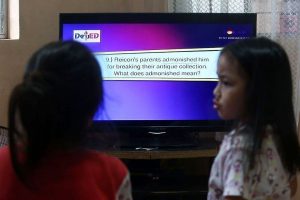ONLINE LEARNING has the highest potential in emerging markets because newly-established connectivity can set the stage for “explosive growth,” the International Finance Corp. (IFC) said.
“Nowhere is the potential of online learning higher than in emerging markets, where young populations, fewer existing educational opportunities, and expansions in connectivity set the stage for explosive growth,” the IFC said in a report.
While the coronavirus pandemic accelerated online and blended learning globally, digital adoption during the lockdowns is still uneven and unequal, and many educators only turned to online learning due to necessity rather than choice, it said.
“School closures and the shift to online provision in higher, technical and adult education have significantly disrupted the learning of students around the globe,” the IFC said.
It also noted that educators still lack the financial and technological resources to “support their learners adequately through lockdown.”
The IFC said that further investment in technology and innovation for online learning may provide quality education, not only for high-income learners, but to marginalized students as well.
Noel M. Ajoc, regional director of the Philippines’ Department of Science and Technology (DoST) said there is a need to democratize learning through online open courses.
“Why is it that only the rich can go to top ranked universities, why can’t it be anyone? Massive online open courses (MOOCs) are the practical way to do that,” Mr. Ajoc was quoted as saying in the report.
According to the IFC report, 57% of households in emerging markets used the internet in 2021 compared to 90% of those in developed countries.
Internet use in emerging markets is also less widespread and often more costly, with services of lower quality.
With limited connectivity, online learning opportunities have become restricted to higher-income populations, the report said.
“A study of MOOCs in Colombia, the Philippines, and South Africa found that 80% of users only have basic or intermediary Information Communication Technology (ICT) skills. Similar studies in Nigeria and Nepal also found connectivity to be a challenge for learners.”
To mitigate the rising digital divide, the IFC proposed that the government conduct upskilling programs and offer a wide range of online courses for priority segments of society.
The report cited the DoST’s Caraga regional office’s partnership with Coursera’s Workforce Recovery Initiative Learning Program in 2021 was availed of by 75,000 Filipino scholarship grantees.
The program intended to provide learners access to thousands of courses from top universities and organizations worldwide.
Mr. Ajoc reported that most of the learners in the initiative were women. He said the program has helped equalize access to job-relevant education across various income and education levels.
In a program survey, the majority of learners also said the training initiative helped them land a job. — Keisha B. Ta-asan
